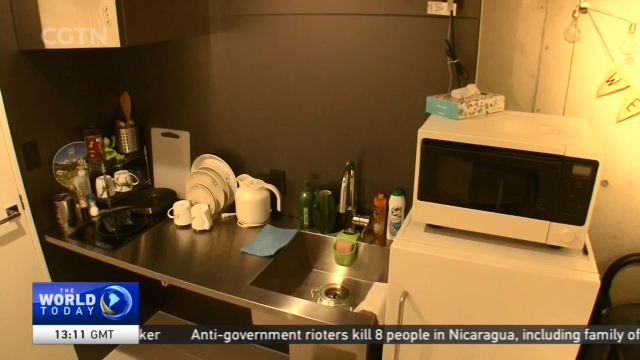
21:34, 17-Jun-2018
Japan Home-Sharing: New law regulates private short-term lodging business
02:26

Japan has passed a new law requiring hosts of private temporary lodging to register with the government. Those without licences will have to cancel reservations booked before June 15th. Our correspondent Terrence Terashima reports on the impact on tourists and Japan's home-sharing industry.
Japan's private lodging service, so called "Minpaku" grew considerably from 2014. The business expanded without any regulations, but from growing demand from inbound tourists. By the end of 2017, private lodging providers grew over 60,000 and more than 12 percent of international visitors stayed in these "Minpaku".
TERRENCE TERASHIMA TOKYO "Home-sharing has long stood on a grey zone, which has caused countless troubles with, local residents, municipal government, and even broke some local regulations. The new law will certainly tighten qualifications, but the strict qualifications have discouraged many people from continue the home sharing business."
It is said only around 3,000 applied before the law came into effect on Friday.
NOBUAKI TAKIZAWA JOURNALIST "The reason there are fewer applicants is because of the very strict law. You have to pass fire regulations, and can only operate 180 business days or less per year. On top of that, you have to comply with local government laws. For some, these hurdles are too hard to comply with."
Some critics say Japanese prefers to implement stricter regulations than not, somewhat a cultural habit. Better to be safe than sorry. Officials say the new law will protect the welfare of residents, as well as the safety of the guests. But experts worry that it may also increase underground home sharing businesses.
NOBUAKI TAKIZAWA JOURNALIST "It may drive those who cannot meet the criteria, and are unable to register with government and official sites like Airbnb to register with sites based overseas, away from Japanese official scrutiny, and run an illegal businesses with inbound tourists."
Officials are confident that there will be sufficient number accommodations by 2020. And hopefully the dust will settle by then on the private lodging services. Terrence Terashima, CGTN, Tokyo.

SITEMAP
Copyright © 2018 CGTN. Beijing ICP prepared NO.16065310-3
Copyright © 2018 CGTN. Beijing ICP prepared NO.16065310-3